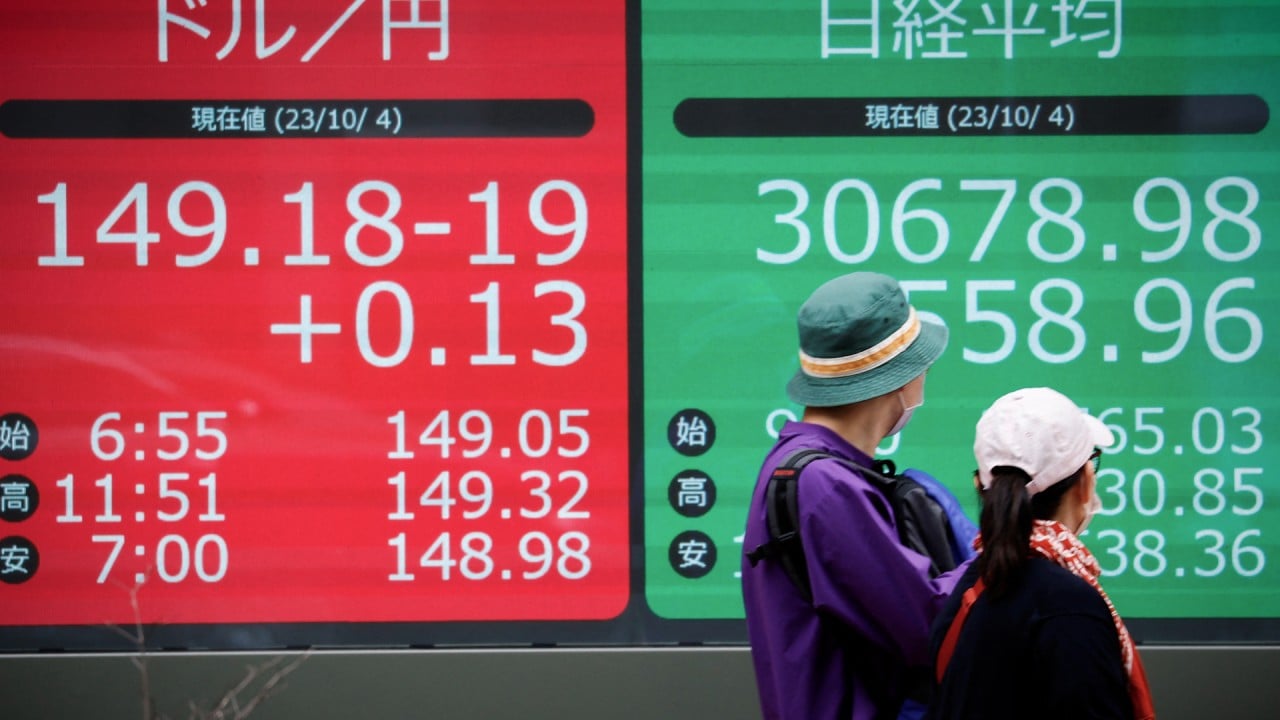
PM Anwar says Malaysia’s economy, investments booming despite ‘concerning’ ringgit free fall
- Prime Minister Anwar Ibrahim said surging investments and falling jobless rate showed the country was in a better shape to tackle currency volatility
- He added the central bank would keep monitoring the ringgit, which hit a 26-year low against the US dollar this week
The currency continues to hover close to its lowest-ever level on elevated pressure from expectations of a US Fed rate change and sustained weakness in China’s economy.
“They always compare to ‘98. In ‘98 the ringgit was down, inflation was up, unemployment was up and there were no investments,” Anwar told reporters on the sidelines of an event.
“But look at the overall [now]. Investments are the biggest ever in the country, inflation continues to go down, unemployment is down, our growth is sustained as compared to our neighbours.”
The government expects the economy to expand by 4 to 5 per cent this year, accelerating from an estimated 4 per cent in 2023.
Anwar’s comments came after Bank Negara Malaysia (BNM) on Tuesday moved to squash fears of a wider economic malaise, saying growth remains on a positive trajectory and that current ringgit levels do not reflect the economy’s “positive prospects” going forward.
A weak ringgit historically grants a boon for exporters in Malaysia’s trade-reliant economy, but also fuels inflation as the cost of imported fertilisers and animal feed get passed on to consumers.
Anwar echoed the central bank’s position, saying that the country recorded the highest level of approved investments in history at 329.5 billion ringgit (US$69 billion) for the whole of 2023, a 23 per cent surge from the previous year.
“If confidence is low due to the ringgit, we would not have attracted these sorts of investments,” he said.
The prime minister, however, said that he has instructed BNM to keep monitoring the ringgit while the government continues with efforts to manage inflation and tamp down on living costs.
This includes plans to manage volatility in prices of basic necessities such as rice, fish and meats, he said.
“What is important to us is to focus on what we can do and what we should do, and we are doing it on a daily basis,” Anwar said.


